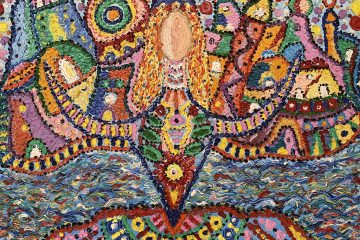NFT is short for “non-fungible token” and is usually programmed in the same way as cryptocurrencies, such as Bitcoin or Ethereum, but that’s where the similarity ends. Physical money and cryptocurrencies are “fungible,” meaning they can be traded, exchanged or swapped against each other. ‘Non fungible’ more or less means that something is unique and cannot be replaced by another, identical item. A 2 euro coin, but also gems and raw materials, for example, are fungible.
Non-fungible tokens are thus cryptographic assets on a blockchain with unique identifiers and metadata distinguishing them from each other. Unlike cryptocurrencies, they cannot be traded or exchanged for equivalents.
To produce NFT’s or ‘tokenize’ objects such as art, collectibles, real estate, as well as value products such as a notarized deed, mortgage or certificate. They can have only one official owner at a time and they are protected by the Ethereum blockchain. No one can change the irrefutable ownership record or copy/paste a new NFT into the blockchain.
NFTs create new property opportunities!
NFTs are becoming a hype that most of us are only now hearing about and beginning to understand for the first time. NFTs are the new way to irrefutably record the ownership of digital products in a blockchain ledger and are becoming increasingly popular in the art and collecting world.
NFTs are especially suitable for the irrefutable recording of agreements, property and rights, such as for wills, deeds, mortgages, diplomas but also music rights, haute couture, everything that is unique and must remain unique. The possibilities are unprecedented. If you see any possibilities please call us immediately, because we have the solution!
Some reflections
- NFTs will completely revolutionize entire industries by changing the way we share and consume just about everything. This is going to be huge, and we are just getting started in this phase of NFT adoption.
- Non Fungible Tokens (NFTs) are stored and traded on a blockchain platform, the most common of which is Ethereum. It makes it reliable and fraud-proof as forgery is not possible due to its decentralized and permanent registration.
- NFT owners can retain ownership rights and directly claim and receive royalties on resale without the intervention of a third party such as a publisher, media agency or other distribution platform.
- NFTs shift revenue from marketers (or distributors, intermediaries) to consumers through commerce and give the owner complete autonomy.
- An NFT comes with a digital certificate of ownership, and the transaction history is publicly available. With everyone obsessed with blue check marks in Whatsapp and vanity plates on Instagram, this gives endless possibilities for NFT owners.
That said, NFTs are still in the early stages of development as tradable assets, and investing in NFTs of art, among others, is risky. They are volatile, and you need to do proper research before making an investment decision. It’s like investing in the cryptocurrency market in 2015. It can be a very lucrative investment if you do good research and invest smartly. But make sure you only invest what you can afford to lose.
This is Web 3.0 and if all goes well, NFTs will be ubiquitous!



0 Comments